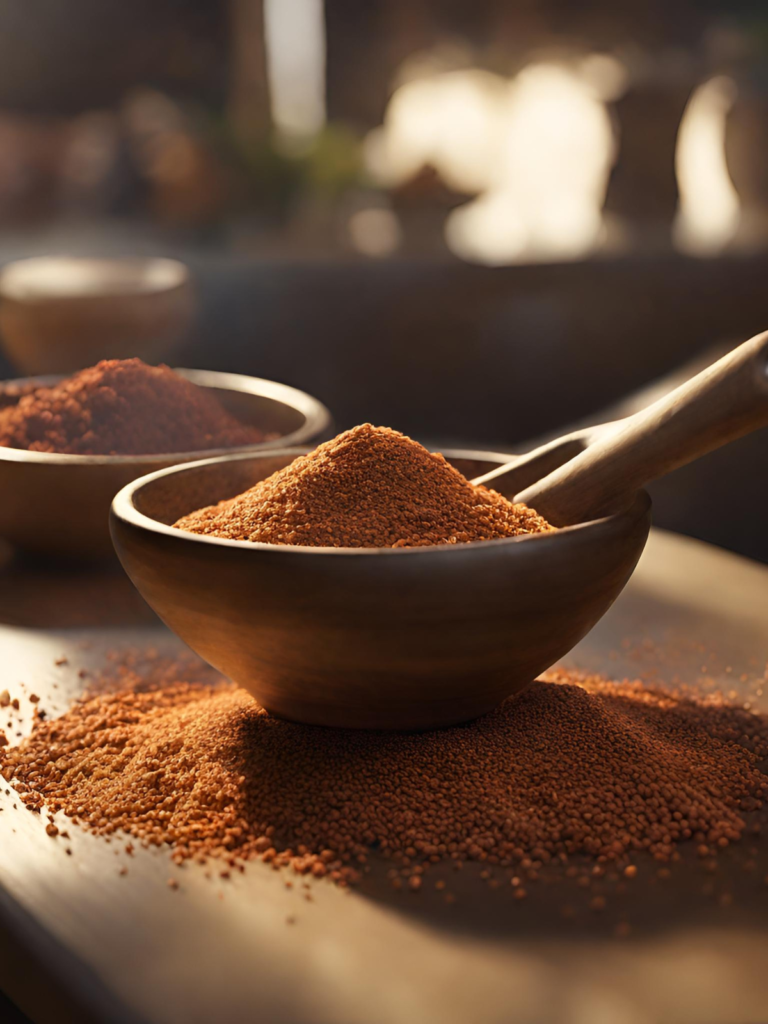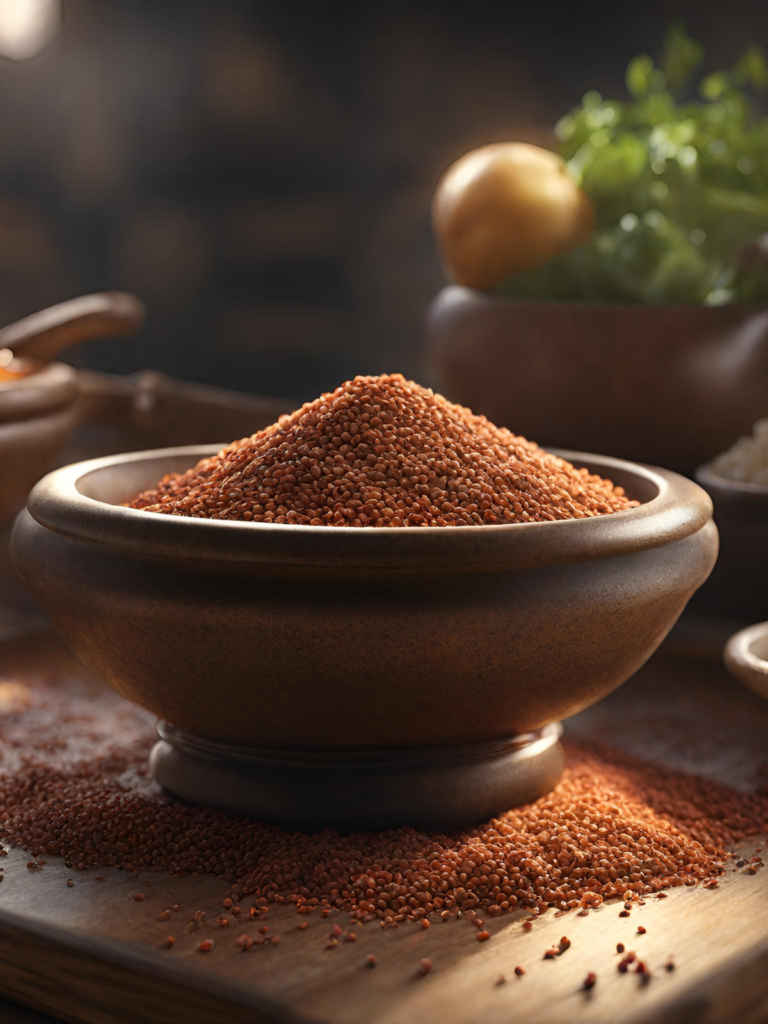Asian Seasoning: A1 Flavorful Journey in Every Bite
Asian Seasoning Overview:
Asian condiments enrich cuisines globally with cultural importance, intricacy, and taste. This article examines Asian spices’ applications, origins, and how to employ them in cooking.
Brief History:
We’ll start our culinary journey by studying Asian seasoning. Each location has its unique botanicals and seasonings from years of expertise. Understanding the history enhances our appreciation for these flavors in current cuisine.
Famous Asian Seasonings:
Soy sauce, fish sauce, and Sriracha are culinary superstars. We’ll explore these popular spices’ umami-rich qualities and how they enhance recipes.
Health Benefits:

Asian Seasoning
Asian flavors improve taste and health. Ginger and antioxidant-rich soy sauce provide taste and promote health.
Besides their delicious tastes, Asian seasoning has numerous healthy components. Common ingredient garlic boosts immunity. Curry powders include anti-inflammatory turmeric. Asian spice adds flavor and nutrients to your food.
Cooking Methods:
Although Asian seasonings are multipurpose, they must be utilized with delicacy. Our team will provide comprehensive guidance on a range of cookery techniques, including miso infusion in broths and stir-frying with sesame oil, so that you can optimize the utilization of these unique flavors.
DIY Blends of Asian-Seasonings:
Why settle for store-bought mixtures when you can make your own? Our team will furnish you with straightforward instructions for preparing do-it-yourself Asian seasoning blends, enabling you to customize the tastes.
Popular Asian Spice Blends:
Some Asian-seasoning combinations are worldwide icons. Soy sauce, with its umami taste, is used in many recipes. Sweet and delicious teriyaki is popular globally, not only in Asia. Fish sauce, a spicy but necessary ingredient, gives Southeast Asian dishes a bite. Each area has its own mixes, demonstrating Asian seasoning variety.
Variations by Region:
Asia is an expansive continent, and its assortment of seasonings reflects this. We shall investigate regional discrepancies, ranging from the robust and piquant aromas prevalent in East Asia to the more delicate and fragrant fusions found in Southeast Asia.
Read More: https://foodiedelightpk.com/lime-salt-a-world-of-flavor-and-functionality/
Frequent Errors in the Application of Asian-Seasoning:
Unsuccumbered specialists are not immune. By emphasizing frequent errors, such as the misuse of soy sauce or the underestimation of wasabi’s potency, we shall assist you in circumventing culinary pitfalls.
Adding Asian Seasoning to Daily Meals:
Asian flavor may enhance your regular cooking without a degree. Try soy sauce in scrambled eggs, sesame oil in salad dressings, or curry powder in soup. The idea is to integrate Asian spice into your culinary routine to open a world of tastes in every meal.
Cultural Significance:
In addition to serving a culinary purpose, Asian seasonings possess cultural significance. An exploration of the symbolism and rituals linked to these flavors will be undertaken, demonstrating their intrinsic significance within diverse traditions.
Fusion cuisine:

As the gastronomic age becomes more global, fusion cuisine is gaining popularity. In this investigation, we shall examine the manner in which chefs adeptly integrate Asian seasonings with various culinary traditions to craft dishes that surpass national boundaries.
Fusion Food with Asian-Seasoning:
Gastronomy is developing, and chefs are adding Asian flavor to non-traditional foods. Fusion food offers a canvas for creativity, from Asian tacos to soy-infused spaghetti. Traditional Asian tastes and foreign components create a worldwide culinary symphony.
Ecological Sourcing:
It is vital that conscientious consumers contemplate the ethical implications associated with their food selections. We shall deliberate on the subject of sustainable procurement, providing guidance on how to discern Asian seasonings that are environmentally conscious.
Popular Recipes:
What is trending in the realm of cuisine? We will acquaint you with fashionable recipes that integrate Asian seasonings, enabling you to remain updated on the latest culinary creations.
Asian-Seasoning and Vegan/Vegan Cooking:
Asian seasoning transforms plant-based diets. Soy sauce and curry pastes can make ordinary veggies taste amazing. Vegan ramen, stir-fried tofu, and vegetable curries show Asian seasoning’s adaptability in vegetarian and vegan cookery.
Advice on Storage:
It is a discipline to maintain the efficacy of your seasonings. We will impart knowledge-based recommendations regarding the proper storage of Asian seasonings to guarantee their continued freshness and flavor potency throughout your culinary endeavors.
Read More: https://www.tasteatlas.com/best-rated-spice-blends-and-seasonings-in-asia
Suggestions from Prominent Chefs:
Gain knowledge from the experts. Prominent chefs impart their knowledge regarding the utilization of Asian seasonings, providing invaluable strategies to improve one’s culinary proficiency.
Interview with Chef:
Chef Mei Lin, known for her unique take on mixing traditional Asian tastes with contemporary methods, gave us further insight into Asian seasoning. Chef Mei Lin says, “Asian seasoning lets cooks create complicated, harmonizing foods. Understanding components and their cultural background and incorporating it into every production.”
Asian-Seasoning Cooking Tips:

Asian-seasoning takes finesse and risk-taking. Use soy sauce or other salty mixes sparingly and adjust to taste. Try various ginger, garlic, and spice combinations to get your taste. Let your taste buds lead you and enjoy culinary discovery.
Final Remarks:
As a conclusion, Asian-seasonings comprise an extensive and fascinating universe. Favors with historical origins and contemporary influences have evolved into an essential component of international gastronomy. Savor, investigate, and experiment with the varied flavors that Asian seasonings impart to the table.
FAQs:
Are Asian-seasonings uniformly spicy?
No, Asian-seasonings do not all contain heat. While certain condiments, such as Sriracha, impart spice, others, like soy sauce, provide a more umami-rich and savory flavor profile.
May I combine various Asian-seasonings in a single dish?
Undoubtedly so! Diverse seasonings can be utilized in an experimental fashion to produce novel and delectable flavor combinations. Simply guarantee an equitable combination to achieve a harmonious flavor.
Do vegetarian alternatives exist for Asian-seasonings?
Certain Asian-seasonings, such as miso and soy sauce, do indeed exist in vegetarian alternatives. Investigate recipe books or product labels in order to identify appropriate alternatives.
What’s the shelf life of Asian-seasonings?
Most Asian-seasonings have a lengthy expiration life when stored properly. However, for specific expiration dates, it is advised to consult the labels of individual products.
How should Asian-seasonings be most effectively integrated into Western dishes?
Begin with tiny quantities and increase them progressively to flavor. Engaging in culinary experimentation with familiar dishes can impart a captivating element to one’s creation


